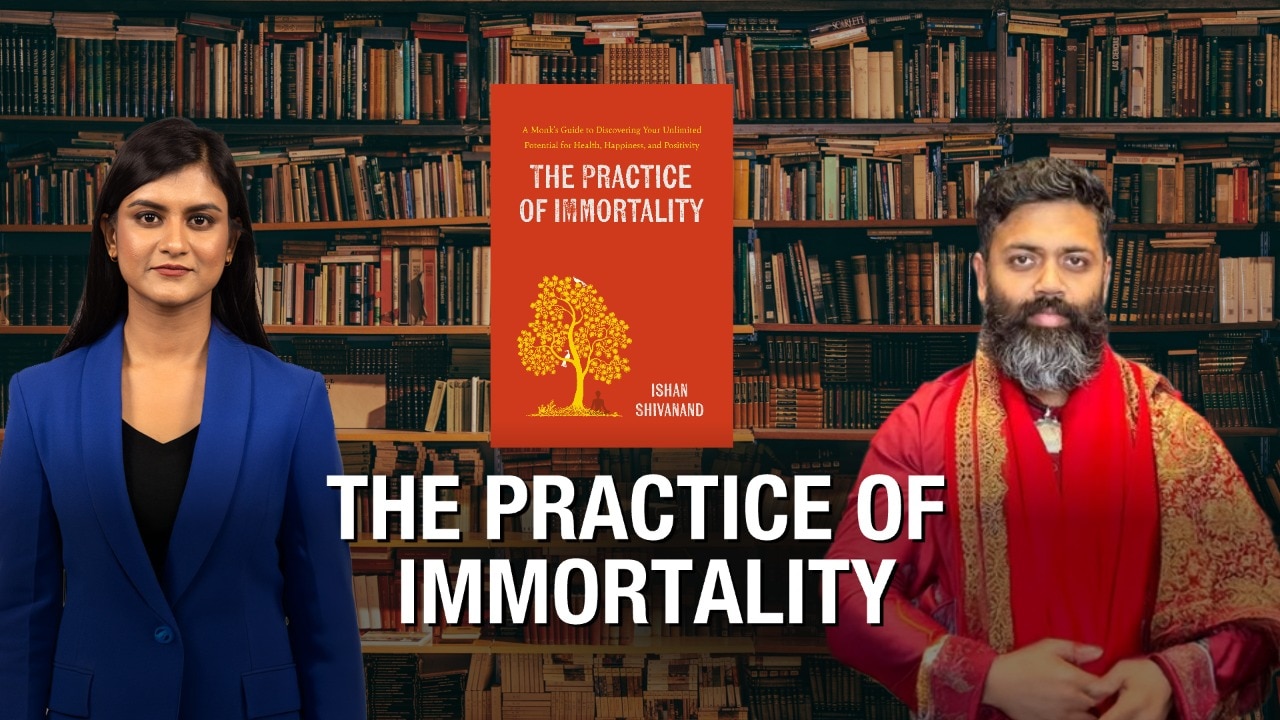The Search for Meaning in a Fast-Paced World
In today’s world, where the pursuit of control and productivity dominates daily life, we often overlook a fundamental question: What does it truly mean to live? For centuries, Indian philosophy has provided a unique perspective on this issue. It offers a radical yet quiet insight that challenges our conventional understanding of life and time.
Beyond the Concept of Immortality
Immortality, according to this ancient wisdom, is not about how long we live but rather about how aware we are during our time here. This idea forms the core of “The Practice of Immortality,” a book that merges yogic traditions with modern mental health science. Rather than focusing on extending our lifespan, the book suggests that true freedom lies in learning to calm the mind and regulate our breath.
Dr. Ishan Shivanand, an author and yogi, explains in an interview that the deepest part of our identity is not physical. Instead, he emphasizes that “we are our consciousness,” which is infinite and capable of connecting with universal consciousness. This concept shifts the focus from longevity to presence.
Living Long vs. Living Well
This shift in perspective changes what we aim to achieve. Immortality becomes less about time and more about being fully present. Dr. Shivanand notes that while prolonging life may be possible, if one is constantly suffering, then they are trapped in misery forever. The real question is not how long we live, but how well we live.
Are we grounded in our lives? Do we react impulsively to every situation? Can we sit in silence without feeling uncomfortable? These are the questions that mark the beginning of real transformation.
Turning Inward in a Distracted World
Dr. Shivanand believes that more people, especially younger generations, are beginning to feel the need to turn inward. He shares his own journey, stating that he once explored the outer world but found no fulfillment. Now, he seeks something deeper and more meaningful within himself.
However, this inner exploration is challenging in an age filled with constant distractions. Every notification and algorithm competes for our attention, leading us into what he calls “Maya inside Maya” — illusion within illusion. This is not just a poetic metaphor; it’s a warning about the dangers of overstimulation and disconnection from ourselves.
Two Paths: Numbing Out or Waking Up
Dr. Ishan highlights a growing cultural divide. One group may become lost in digital worlds and artificial stimulation, while another seeks clarity, emotional awareness, and self-control. He warns that as these algorithms become more advanced, we must decide whether we will be controlled by them or take control of our own minds.
In this context, ancient practices like breathwork and meditation are more relevant than ever. They are not mere spiritual luxuries but essential tools for surviving the modern mind’s chaos.
Starting Small: Simple Practices for Change
While traditional yoga aims for enlightenment or samadhi, many people today simply seek relief. Dr. Shivanand acknowledges that visitors to his ashram often look for a little respite from their stressful lives. This realization changed how he taught. Instead of offering grand ideas, he began introducing small, simple practices such as deep breathing, observing thoughts, and calming the body.
These practices may not bring immediate change, but they lead to gradual and steady transformation over time.
Bridging Science and Spirituality
Dr. Ishan has collaborated with universities and medical professionals to study the effects of these practices. He believes that the future of mental wellness will depend on merging scientific research with spiritual traditions. “True spirituality can only occur if there is a marriage between science and spirituality,” he says.
Research supports this approach. Studies on breathwork, meditation, and trauma healing have shown measurable benefits for mental health, reinforcing the value of these ancient techniques.
Immortality as a State of Mind
Ultimately, immortality is not about living forever but about embracing the present moment with awareness and calm. It is a practice of being awake, grounded, and connected to oneself. It doesn’t require perfection, just a willingness to begin.
Dr. Ishan poses a simple but powerful question: “Don’t you want to be happy? Don’t you want to be in a state of emotional regulation and awareness? Don’t you want to be in control of your life?”
Perhaps the real secret to a fulfilling life is not escaping the human condition but embracing it fully — living each moment with intention and presence.







